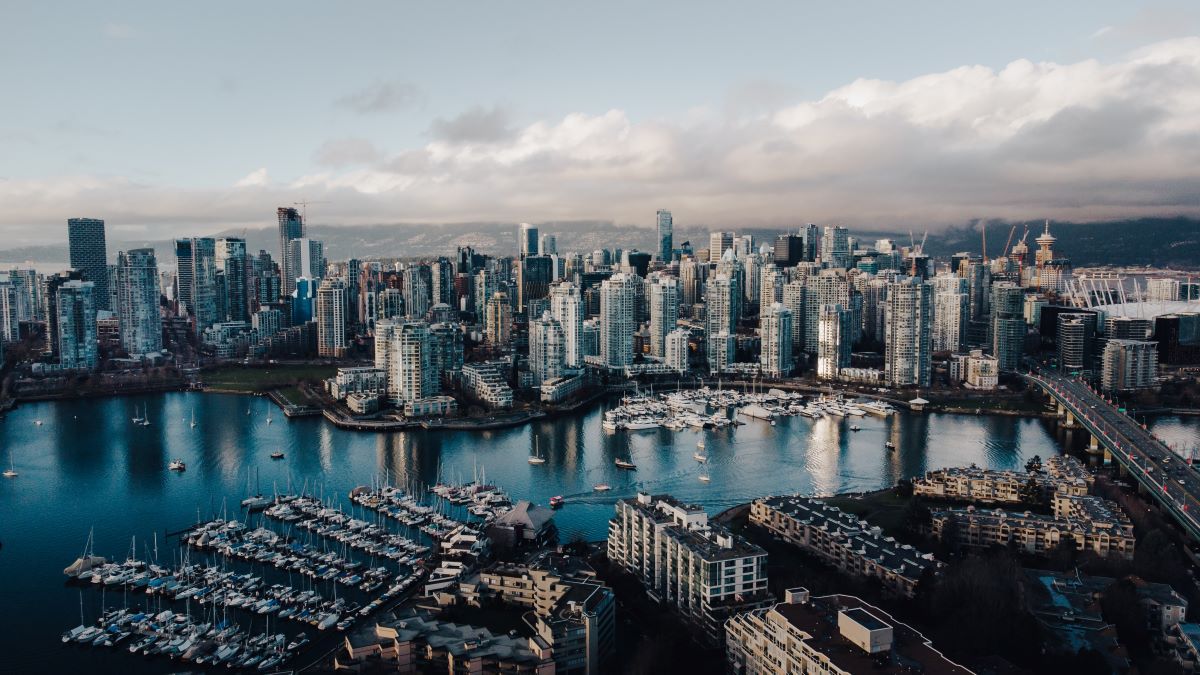
Are you a first-time home buyer in the scenic province of British Columbia? Navigating the homebuying process can feel overwhelming, especially when understanding down payments. Don’t worry; we’ve got you covered. Read on to uncover the essentials of minimum mortgage down payments in BC.
At its core, a down payment is the initial amount you pay upfront when purchasing your dream home. The remaining balance is what you’d typically finance through a mortgage.
The amount you need for a down payment primarily depends on your home’s purchase price:
1. Homes Priced at $500,000 or Below: Expect to set aside at least 5% of the purchase price.
2. Homes Between $500,000 and $999,999: Here’s a simple breakdown:
3. Luxury Homes Priced at $1 Million or More: Gear up for a 20% down payment of the total purchase price.
For those BC homes where the down payment falls below 20% of the purchase price, you’ll usually need to factor in mortgage loan insurance. It’s an added layer of protection for lenders but does come at an extra cost for you.
Special Circumstances?
Lenders might ask for a more substantial down payment for the self-employed or those with a challenging credit history. But don’t be discouraged; every buyer’s journey is unique.
Pro Tip for BC Buyers: Always aim to source your down payment from personal savings. It showcases financial responsibility and can make the mortgage approval process smoother.
Quick BC Down Payment Example:
Are you embarking on the journey to homeownership in beautiful British Columbia? First and foremost, understanding how much of a mortgage you can afford will be pivotal. Let’s dive in and simplify this process for you, the eager first-time BC home buyer!
1. Gross Debt Service Ratio (GDS): This measures your housing costs (mortgage principal, interest, taxes, heating) against your income.
Formula: (Housing expenses) ÷ (Annual Income)
Golden Rule: Aim for a GDS below 39%.
2. Total Debt Service Ratio (TDS): A more expansive view, this ratio evaluates broader expenses like credit card interest and car loans with your income.
Formula: (All expenses mentioned above) ÷ (Annual Income)
Golden Rule: Keep your TDS under 44%.
Remember Your Credit Score: A shining credit score can land you favourable mortgage terms in BC, so it’s worth keeping it in check!
A Handy Tool for BC Buyers: Want a quick, efficient way to gauge your mortgage affordability? Head over to RateHub’s Mortgage Affordability Calculator. This intuitive tool will give you a clear picture of how much you can afford in the BC housing market.
To wrap up, Understanding your mortgage affordability is more than just crunching numbers; it’s about making informed decisions to secure your dream home in BC. And with British Columbia’s diverse range of properties, from bustling Vancouver to tranquil Kelowna, knowing your buying power is the first step in a journey you won’t regret. Happy house hunting!
Are you considering a no money down payment for your dream home in BC? While these loans were once common, post-2008 regulations have reshaped the landscape. Today, the flex down mortgage, where you borrow the down payment, offers a potential avenue.
Conclusion: Tread cautiously with zero down payments. Understand the implications and weigh the pros and cons before diving into BC’s dynamic housing market.
As of September 19, 2023, the Big 5 Banks offering the lowest mortgage interest rates are RBC, with a 5-year fixed mortgage rate of 5.69%, and CIBC, with a 5-year variable mortgage rate of 6.7%.
While these are the lowest Big Bank rates available in BC, they are not the lowest mortgage rates in the market. Click here to find the best mortgage rates in BC from ratehub.
British Columbians have access to 3 national homebuying programs. Additional incentives vary by province. Leveraging these grants, rebates, and incentives can make your first home purchase more affordable, especially in pricier markets like Vancouver. With the average Canadian property price at $688,000 as of June 2021, first-time buyers should consider tax credits, grants, and the First Home Savings Account (FHSA) to assist in their purchase. Explore federal, provincial, and municipal programs to maximize benefits.
(1) First-Time Home Buyer Incentive (FTHBI): Introduced in Fall 2019, FTHBI provides 5% or 10% of a property’s purchase price for your down payment, reducing monthly mortgage payments. It’s a shared-equity mortgage, meaning the government’s investment in your home will be affected by its market value. Repayment is due when selling the property or after 25 years. Eligibility criteria include an annual income below $120,000 (or $150,000 in cities like Vancouver), being a ‘first-time buyer,’ and other specific conditions.
(2) First-Time Home Buyers Tax Credit (HBTC): First-time buyers can claim a $5,000 credit on taxes, potentially resulting in a $750 rebate. This amount can offset legal fees, moving expenses, or closing costs. You’re eligible if you haven’t owned a home in the previous four years and your newly acquired property meets government standards.
(3) Home Buyer’s Plan (HBP): Allows first-time home buyers to withdraw up to $35,000 interest-free from their RRSP. If buying with a partner, a combined $70,000 can be used. The home can be for personal use or for a relative with disabilities. Withdrawals must be reinvested within 15 years; otherwise, they’ll be treated as taxable income.
Utilize these federal programs to facilitate your home purchase in BC.
(1) BC First-Time Home Buyers’ Program: The BC first-time home buyers’ program can significantly reduce or even waive the property transfer tax for eligible residents. If only some buyers qualify, the exemption applies proportionally to their share in the property. For instance, if a qualified buyer holds a 60% interest, only 60% of the purchase price gets the exemption.
Eligibility Criteria:
Property Requirements for Full Exemption:
Partial Exemption:
To determine your exemption or learn about possible refunds, check your eligibility and reach out at 236-478-1593.
(2) BC Home Owner Grant: The Home Owner Grant in BC is designed to help residents reduce their annual property taxes. While most people are eligible for what’s termed the “regular” or “basic” grant, specific groups can qualify for a heightened amount, known as the “additional grant.” This enhanced amount applies to seniors, veterans, individuals with disabilities, those living with a spouse or relative with a disability, and relatives of a deceased owner who would have been eligible.
The exact grant amount varies based on location: properties in the Capital Regional District, Metro Vancouver Regional District, and Fraser Valley Regional District receive a regular grant of $570. In contrast, properties in other regions of BC are granted $770. The grant you receive can be full or partial, depending on the assessed value of your property. There’s a stipulation that property owners must first pay a minimum of $350 in property taxes to be eligible for the regular grant. However, for those who qualify for the additional grant, such as seniors or persons with disabilities, this minimum is reduced to $100. These minimum tax contributions include essential services like road upkeep and police protection.
To be eligible for the grant, individuals must be the registered owner of the residence or a spouse or relative of a deceased owner. Additionally, they must be Canadian citizens or permanent residents, live in BC, and occupy the property as their primary residence. It’s also crucial that the assessed or partitioned value of the property does not exceed the grant’s predetermined threshold. Additional requirements might be applicable for those in the process of buying or selling a property.
(3) GST Exemption on New Home: If you’re in the market to buy a new home in British Columbia (BC), understanding the Goods and Services Tax (GST) implications is crucial. Here’s a simplified guide to navigating the waters:
What is the GST on New Homes in BC?
When and Who Pays the GST?
What About Assignments of Contracts on New Homes?
Defining a New Home:
GST Rebates for New Homes: Two essential rebates are available for new homes in BC:
(1) GST New Housing Rebate:
(2) GST New Residential Rental Rebate:
When buying a new home in BC, be aware of the GST’s implications and potential rebates. Always verify whether the listed price includes the GST to avoid double payment. Consider consulting a professional for accurate calculations and understanding your eligibility for available rebates.
When diving into the real estate market for the first time, many British Columbians look to federal and provincial programs for assistance. However, often overlooked are the invaluable aids provided by local municipalities. Especially in high-priced markets, municipal incentives can make a significant difference.
Take Toronto as an example. First-time homebuyers in this bustling metropolis can avail of a land transfer tax rebate of up to $4,475. This kind of financial relief can be a game-changer, especially when navigating a market where property values are above the national norm.
While BC boasts its real estate nuances, similar incentives are expected. Many municipalities have rolled out affordable homeownership programs alongside first-time homebuyer benefits. Though these aren’t exclusive to debutant buyers, they’re a boon to those with limited household income. Moreover, they often facilitate purchases up to a certain price ceiling, ensuring the real estate market remains accessible to a broader demographic.
It’s more than just the major cities introducing such programs. In Ontario, areas like Waterloo, Windsor, and Simcoe, among others, have stepped up with initiatives tailored to their residents.
In conclusion, remember to explore your local municipality’s offerings while starting your homeownership journey in BC. Between federal, provincial, and municipal programs, there are multiple avenues to make your dream home a reality.
Launched by the federal government in 2022, the First Home Savings Account (FHSA) is a game-changer for aspiring homeowners. Designed explicitly to accelerate the dream of owning a home, FHSA offers a tax-free environment for saving.
How does the FHSA work? Think of it as a fusion of the best aspects of the registered retirement savings plan (RRSP) and the tax-free savings account (TFSA). Just like an RRSP, your contributions to the FHSA are tax-deductible, allowing you to get the most from your income. On the other hand, when you’re ready to withdraw for your first home purchase, you’ll experience the benefits of a TFSA, meaning those withdrawals won’t be taxed. This combination ensures that more money goes directly towards securing your dream home. In short, the FHSA offers first-time buyers a unique, tax-efficient pathway to homeownership.
It’s a common refrain echoed by many: “Is now the right time to buy a house in BC?” The housing market, notoriously unpredictable, has taken a rollercoaster ride over the past year. Although housing prices across Canada saw a 4% dip from May 2022 to May 2023, the uptick in national home sales by 4% for the same period tells a different tale. The situation becomes even murkier when we hone in on British Columbia, where despite a 5.8% decrease in average housing prices, the monthly climb of 3.5% remains troubling for potential buyers.
British Columbia, particularly Vancouver, continues to be costly for first-time homebuyers. With an average price teetering close to a million dollars ($995,506, to be exact), the dream of homeownership seems elusive for many. Google Canada’s data adds another dimension to this narrative. It reveals that people are increasingly searching for real estate opportunities, particularly in smaller BC cities like Surrey, Port Moody, Abbotsford, and Langley. While traditionally, these less-populated areas offered lower housing prices than urban centers, the recent surge in interest is driving costs upwards, posing additional challenges for first-time buyers.
One of the more significant barriers to entry for many is the increase in interest rates. It’s not just the upfront cost of a home causing hesitation; it’s also the long-term commitment of a mortgage. With the Bank of Canada’s post-pandemic policy adjustments, borrowing has become pricier. This means monthly mortgage payments are now heavier on interest and lighter on the principal. Further complicating matters is the federal banking regulator’s potential stress test increase, a move intended to stabilize markets like Metro Vancouver but may inadvertently penalize young or new buyers.
Despite the decline in housing prices, the BC market still feels inaccessible to many first-time homebuyers. From May 2022 to May 2023, there was a whopping 46% drop in first-time homebuyer activity, even as total transactions decreased by only 18%. So, who’s driving the market if it’s not the new buyers? The numbers suggest that existing homeowners are either expanding their investment portfolios or switching properties.
With the high interest rates unlikely to nosedive soon, what should prospective homeowners do? For many, patience could be key. While waiting, focusing on minimizing other debts can prove beneficial. A lower debt profile can secure better interest rates in the future. If you are keen on exploring the market, getting a mortgage pre-approval can offer clarity on affordable price ranges. Ultimately, aligning with a knowledgeable REALTOR® can make a difference, helping first-timers find the best deals in this heated market.
As Canada’s population hit the 40 million mark on June 16, 2023, the implications for BC’s real estate market became even more apparent. A growing populace suggests an escalating demand for housing, with BC positioned as a prime hotspot. For those who are financially poised, investing in BC’s property market could offer significant returns as real estate prices are projected to ascend steadily. If you’re financially prepared, this could be the opportunity to capitalize on BC’s promising real estate trajectory.
In Conclusion: Embarking on the BC homebuying journey is exciting. Equip yourself with the knowledge of down payments, and you’ll be one step closer to unlocking the door to your new home. If you have further questions, consult a local BC mortgage expert. Welcome to homeownership in beautiful British Columbia!
Related Readings

Hey Quebec parents! On the lookout for the top-tier high schools for your soon-to-be grad? Filtering through the choices can feel like a marathon, but we have the shortcut ready. Dive deep into the Fraser Institute Ranking Report Cards on Quebec’s High Schools in 2023 for the full scoop. The Fraser Institute Ranking is a […]

Hey Montreal parents! On the lookout for the top-tier high schools for your soon-to-be grad? Filtering through the choices can feel like a marathon, but we have the shortcut ready. Dive deep into the Fraser Institute Ranking Report Cards on Quebec’s High Schools in 2023 for the full scoop. The Fraser Institute Ranking is a […]

Hey Vancouver parents! On the lookout for the top-tier high schools for your soon-to-be grad? Filtering through the choices can feel like a marathon, but we have the shortcut ready. Dive deep into the Fraser Institute Ranking Report Cards on BC’s High Schools in 2020 for the full scoop. The Fraser Institute Ranking is a […]

Hey Vancouver parents! Are you searching for the crème de la crème of elementary schools for your budding genius? Navigating the choices can be a whirlwind, but we’ve streamlined it for you. Dive into the Fraser Institute Ranking Report Cards on BC’s Elementary Schools in 2023 for a comprehensive lowdown. A little teaser for you: […]